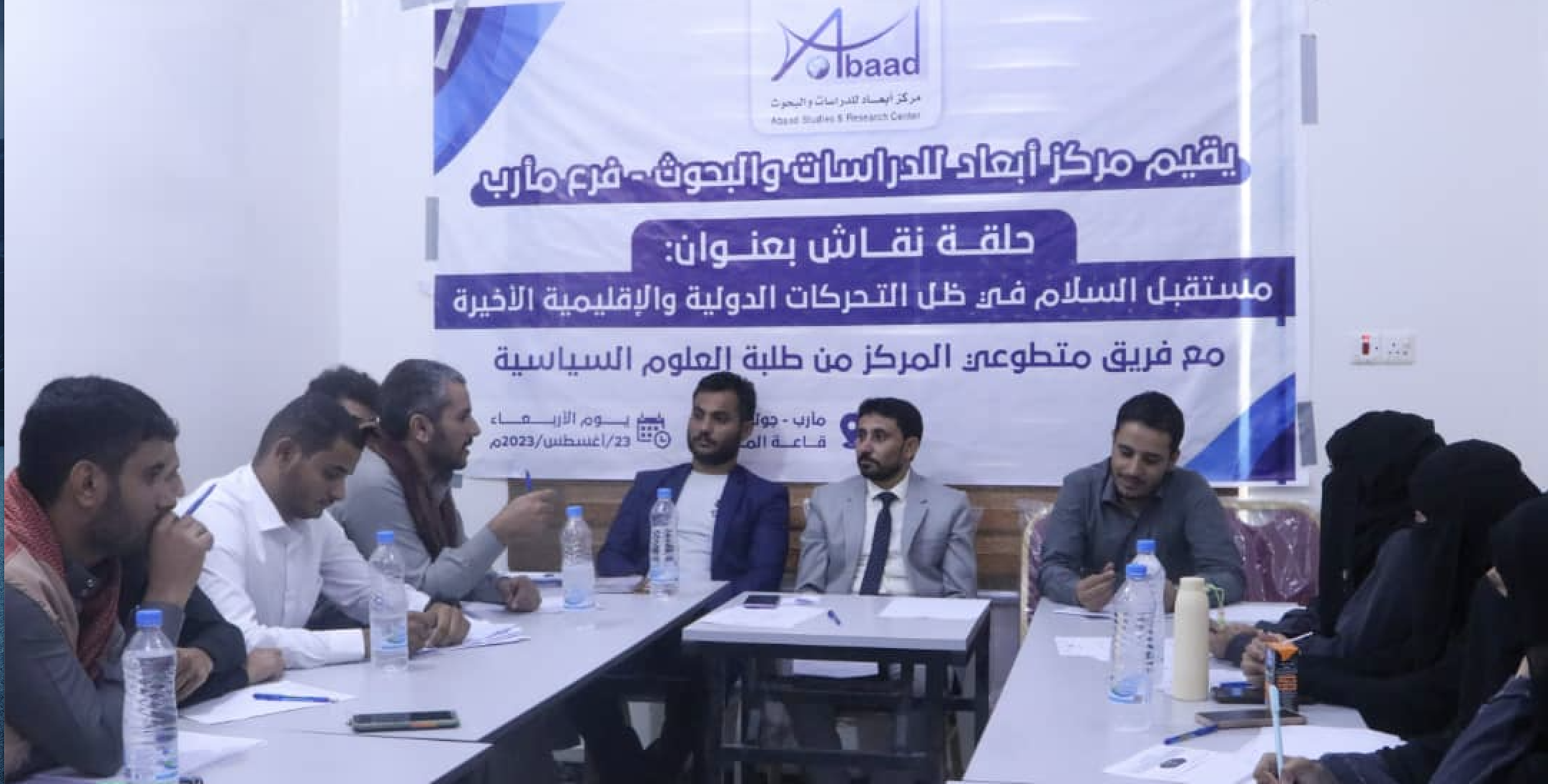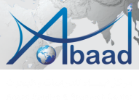Abaad Marib Organizes a Panel Discussion on the Future of Peace with Student Volunteers

Abaad Studies and Research Center - Marib Branch- in cooperation with Political ScienceStudent Volunteers is holding a panel discussion entitled: "The Future of Peace in Light of Recent International and Regional Moves"
Abaad Studies and Research Center - Marib Branch, with the participation of a team of political science student volunteers, organized a panel discussion on the future of peace in the context of recent international and regional developments.
"This activity is part of a series of activities of the rehabilitation and research training program for university students," said Dr. Omar Radman, Director of the Center's Branch. " Next October, the center will celebrate its thirteenth anniversary after a long journey of research and practical achievement with a wide team of researchers and experts in various national tracks. The center has important future directions in community outreach, building scientific knowledge, strengthening capabilities, expanding partnerships, and supporting institutions and decision-makers," he added.
The panel discussion, which was held at Marib branch and opened with the Republican Anthem, reviewed the main developments in Yemen, the most important of which are the threats of the Iran-backed Houthi militia and their impact on peace efforts, as well as the recent repercussions of international and regional moves on the situation in Yemen.
On their part, university students, researchers and volunteers at Abaad discussed UN and American envoys' moves, and Oman's efforts after the last delegation visit to Sana'a.
Participants also discussed the repercussions of the Saudi-Iranian dialogue and the Saudi-Houthi understandings on the Yemen war, exploring the fears of Yemeni government's allies that Houthis would exploit the regional and international approach to peace to raise their demands at the negotiating table.
The speakers examined the Houthis exploitation policy, referring to many files that turned into an opportunity for extortion by the Houthis against the Yemeni legitimacy, the most important of which are the terrorism card, the Safer ship file, and the humanitarian file, foremost of which are salaries and the opening of roads, in addition to the repeated threats to target oil installations. The speakers concluded that the Houthis' continued arms smuggling, recruitment, and the deployment of cross-border missiles and suicide marches indicate their insistence on war, which poses a threat not only to Yemen, but to the security of the whole region.
The panel discussion recommended that the international and regional community, especially the Saudis and Omanis, along with the Americans, the French and the British, should continue to pressure the Houthis to end the war.
In line with this, the speakers considered the initiative of the Vice-President of the Presidential Leadership Council and the Governor of Marib, Major General Sheikh Sultan Al-Arada, to open the roads and extend the power lines to all Yemeni governorates, as a national initiative that could be built upon to alleviate the suffering of Yemenis; a gesture that confirmed the importance of the role of Marib Governorate in the equation of peace and war.
The speakers described the statement of the Vice-President of the Presidential Leadership Council and Chairman of the Southern Transitional Council (STC), Major General Aidaroos Al-Zubaidi, to accept the option of popular referendum as a step that could contribute to bringing together the ranks of legitimacy and ending the division until the restoration of the Yemeni state and its capital, Sana'a.
The initiative of the Vice-President of the Presidential Leadership Council and the head of the Political Bureau of the National Resistance, Brigadier General Tariq Saleh, regarding the unilateral opening of the Hays-al-Jarrahi road, was welcomed by the panelists as important in alleviating the suffering of the civilians.
At the end of the panel discussion, the university students called on the Houthi group to stop implementing an external agenda at the cost of Yemen's security and stability, stressing the need to unify the house of legitimacy under the Presidential Leadership Council and the direction to achieve a comprehensive peace that ends war and conflicts between Yemenis.
The participants in the workshop called on the Yemeni government to enhance economic stability, unify the financial position, and activate the role of youth and women in political participation and decision-making, warning of the repercussions of the continued economic deterioration and the increase of poverty rate in the various governorates of Yemen, particularly the governorates under the militia’s control.
l.






